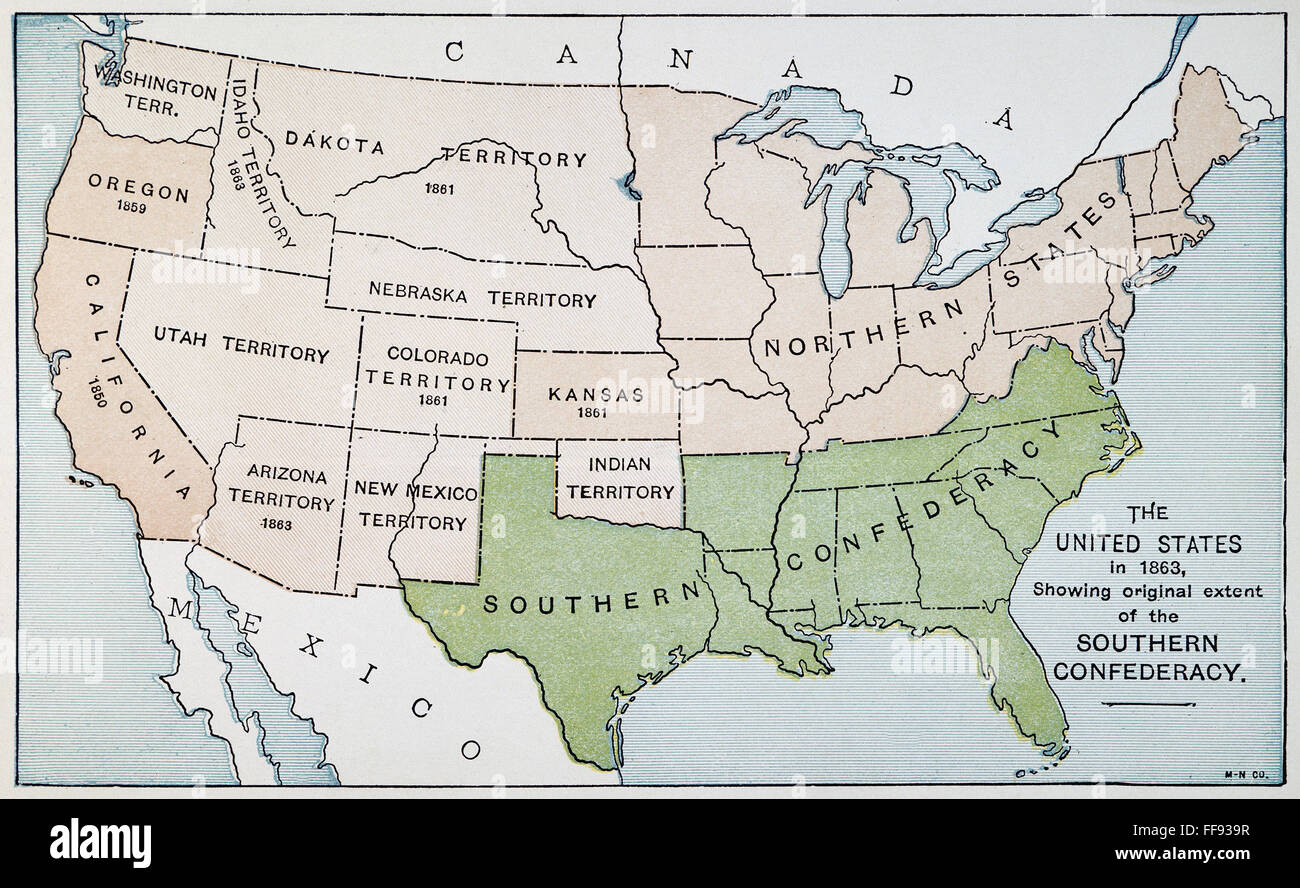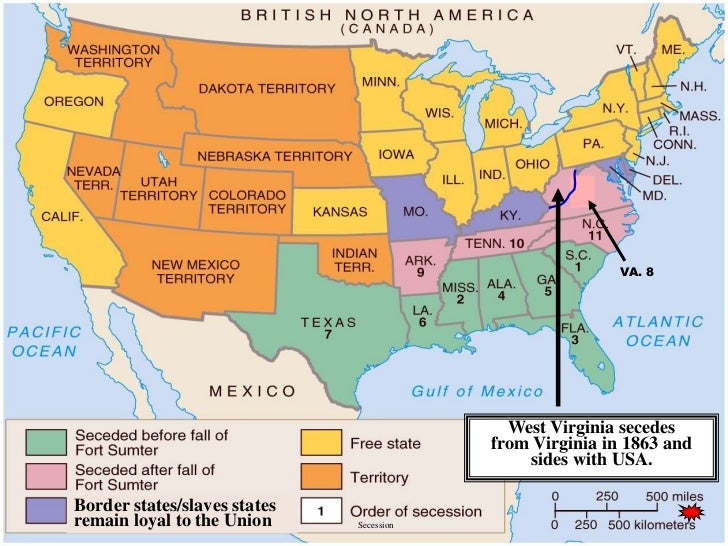Divided Union 1863 Map: Label & Color States
Could a single map truly encapsulate the tumultuous landscape of a nation at war? The "Divided Union, 1863" map provides a stark, visual representation of the United States during its most critical period, offering insights that extend far beyond mere geography.
This is a free printable worksheet in PDF format, a tangible embodiment of a historical moment. Printing this quiz and engaging with it on paper offers a valuable alternative to the immediacy of online interaction. Consider the value of this hands-on approach to understanding complex historical events. It offers a connection to the past that digital versions can sometimes lack. The "Divided Union, 1863" is more than just a map; it's a snapshot of a dynamic conflict. The year 1863 stands as a turning point, marking a period where the Union, under President Abraham Lincoln, began to regain momentum after initial setbacks. The map, therefore, becomes a critical tool for understanding the strategies, the sacrifices, and the shifting tides of the American Civil War.
To fully grasp the complexities of this era, consider the map, and the context within which it existed, and the implications of it. Understanding the geographical divisions and the shifting allegiances is vital.
- Big Bear Lake Filming Locations Your Guide To Movie Sets
- Nicole Booker Tiktok Star Model What You Need To Know
| Title | The Divided Union, 1863 |
| Date | 1863 |
| Context | American Civil War |
| Geographical Scope | United States of America |
| Key Features |
|
| Notable Events Represented |
|
| Sources |
|
| Significance |
|
| Reference Website | Library of Congress - Civil War Maps |
The "Divided Union, 1863" map also shows the states that remained loyal to the Union, including Missouri (MO), Maryland (MD), Delaware (DE), and Kentucky (KY). These states, while permitting slavery, chose to remain within the Union's fold, adding a layer of complexity to the conflict. These states are often referred to as "Border States," their allegiance was crucial to the Union cause. Their position between the Union and the Confederacy made them vital in terms of both strategic location and resource control.
The map of the divided union 1863 by Julius Bien & Co., lith., N.Y. serves as a visual guide to the conflict. Consider how this map functions within the broader context of cartographic representations of the Civil War. Mapping the American Civil War was a crucial activity. Different types of maps produced during 1863 (military, political, etc.) provide nuanced information.
The Vicksburg Campaign, culminating on July 3, 1863, marked a significant victory for the Union and a turning point in the war. The Union's success at Vicksburg, coinciding with the Battle of Gettysburg, delivered a significant blow to the Confederacy and initiated the beginning of its ultimate demise. Analyzing the various maps produced during 1863 (military, political, etc.) reveals strategic insights and a broader understanding of the war.
- Catriona Gray Sam Milby Relationship Timeline Updates
- Connor Jessup Net Worth 2024 Earnings Salary Bio Revealed
The Emancipation Proclamation of 1863, though a landmark moment in American history, did not apply to all areas. Lincoln's declaration did not extend to the border states that remained in the Union, which reveals the careful political calculations of the time. Another significant event was the formation of West Virginia, which became a new slave state within the Union in 1863, although it initially had gradual abolition laws. This underscores the complex and sometimes contradictory nature of the war's goals and its impact on individual states.
The use of the slavery & secession chart and the statehood chart provides a framework for coloring the map of the United States in 1863, clearly differentiating between Union, Border, and Confederate states. Coloring the map to show the different sides in the American Civil War. This simple activity allows for a deeper understanding of the alignments during the war, the states in the Union, Border States, and the Confederate states. The letters in bold in each state's name on the map will help in matching it to the correct location.
The map itself is not a static image, it's a snapshot of a dynamic conflict. The "Divided Union" map presents a visual representation of the political and military landscape. Examine how the geographical divisions influenced the strategies of both sides. The map allows one to understand the geographical boundaries of the Union and Confederate territories. To illustrate the key events of the Civil War, the map reveals the control and influence exerted by each side.
By using contemporary materials, such as the maps in the atlas and on textbook pages 483, 494, and 495, the viewer can locate the specific states and bodies of water that played a crucial role in the conflict. These details provide a clearer picture of the events of 1863. Further, the study of these maps reveals the different types that were created during the war. Consider the value of these resources as well as the information presented on them.
The mapping of the American Civil War, including the "Divided Union" map, offers valuable insights into the conflict's development. Consider the impact of key events, such as the Vicksburg campaign, in shaping the course of the war. The various maps created during this period (military, political, etc.) provide essential insights into the war's strategic and political dimensions.


Detail Author:
- Name : Mr. Eloy Von
- Username : vheathcote
- Email : blaise44@kemmer.com
- Birthdate : 1993-11-17
- Address : 160 Mertz Field East Lethamouth, MN 34046
- Phone : +1-364-445-7984
- Company : Ortiz, Harvey and Wiegand
- Job : Nutritionist
- Bio : Et excepturi repellendus eum consequatur velit similique exercitationem nobis. Ut et earum rem ut voluptates. Ut eveniet quidem modi et odio eos velit. Ut sint quia adipisci.
Socials
linkedin:
- url : https://linkedin.com/in/ken_flatley
- username : ken_flatley
- bio : Asperiores fuga doloremque sunt veritatis.
- followers : 142
- following : 2782
instagram:
- url : https://instagram.com/flatleyk
- username : flatleyk
- bio : Rem eos et et possimus mollitia omnis. Unde beatae quibusdam nemo iure sequi. Rerum id quisquam ab.
- followers : 3037
- following : 233
tiktok:
- url : https://tiktok.com/@flatleyk
- username : flatleyk
- bio : Libero sed assumenda consectetur voluptatem voluptatem minima omnis.
- followers : 6164
- following : 1490
twitter:
- url : https://twitter.com/flatleyk
- username : flatleyk
- bio : Ea quo iste adipisci et aut quidem velit. Cum similique et vel vel. In natus necessitatibus iste eum nesciunt ut et. Dolores quia incidunt sit libero.
- followers : 2005
- following : 2196